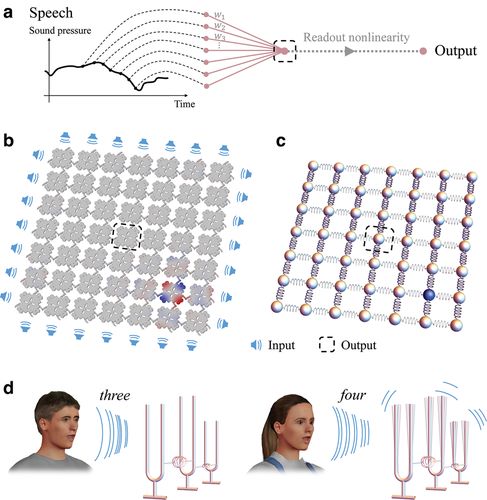Good-bye batteries? A new sensor harnesses mechanical power from vibration
Creators of a new sensor – a group of physicians in Switzerland – claim that their invention has the potential to eliminate millions of batteries from use. They have developed a mechanical sensor that operates without any external power, offering a promising solution to reduce battery waste, which by 2025 could reach a staggering 78 million pieces being discarded daily.
According to Johan Robertson, a leader in the project from ETH Zurich, the sensor operates solely through mechanical means by harnessing vibrational energy present in sound waves. It responds specifically to predetermined sounds, such as spoken words or distinct noises, causing the sensor to vibrate. This vibration generates an electrical pulse that activates an electronic device, indicating that the sensor has been triggered.

Remarkably, the mechanical system can differentiate between different words, distinguishing nuances in sound energy. The researchers aim to enhance the sensor's capabilities, potentially recognizing up to 12 different words, including commands like "on" and "off," which could prove valuable for machine control, the University of Zurich said in a statement.
The breakthrough lies in the creation of a "metamaterial," deriving its properties not from the material itself but from its structured arrangement.
The sensor's materials are relatively simple, primarily composed of silicone, offering potential sustainability advantages, the researchers specified in a study published in the journal Advanced Functional Materials.
Currently, sensors play a crucial role in various contexts worldwide, from monitoring buildings for potential hazards to assisting individuals with hearing impairments. However, these sensors demand continuous power and typically rely on disposable batteries, contributing significantly to environmental waste.
More to read:
MIT engineers develop revolutionary energy-storing supercapacitor using ancient materials
The applications of these sensors are diverse, ranging from earthquake and building monitoring to detecting gas leaks in oil wells. Furthermore, researchers envision potential applications in health devices, suggesting that the sensor could revolutionize technologies such as cochlear implants, eliminating the need for frequent battery changes.
The prototype developed in Robertsson’s lab at the Switzerland Innovation Park Zurich in Dübendorf has already been patented. More research is needed, however, before it goes into commercial marketing.
***
Would you buy us a coffee via PayPal: office[at]rudeana.com or paypal.me/newscafeeu?







